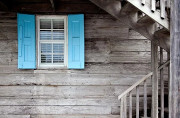15 Steps – Did Your Home Inspector Miss Something?

15 Steps – Did Your Home Inspector Miss Something
When buying a home, having a home inspector do an in-depth inspection of the home is a good idea. Many home inspectors have experience as general contractors which gives them a vast knowledge of how residences should be constructed and what to look for.
Home inspectors are not infallible. In his article, Six Details A Home Inspector Might Miss, in the Home & Garden section of the San Diego Union-Tribune on June 11, 2022, Hunter Boyce lists the following:
Dangerous DIY projects
Cracked pipes
Damaged appliances
Corroded air conditioning
Damp decks and porches
Leaky faucets
Let’s look at each of this items.
Some Do-It-Yourself (DIY) are beyond the limits of many homeowners’ knowledge and abilities. Are you comfortable buying a home in which the homeowner, not a contractor, installed a new main electrical panel or worked on the gas piping? Probably not. Not only are there questions about the workmanship, but have appropriate permits and inspections been obtained? Very dubious.
Cracked pipes are harder problem to find, since most piping in a home are not visible. The waste and sewage pipes are much easier to inspect than the pipes that route water to the various sinks and plumbing fixtures in your home. Plumbers may use cameras to look for cracks, tree roots, and damaged pipes in waste and sewage pipes since they have a larger diameter. Had this done where I live. Got lucky. There are no cracks or leaks and the technician find a clean out that had gotten buried.
The damage to appliances may not be easy to detect. The home inspector is not going to run the dishwasher, cook a meal, or do a load of laundry. The inspector may only to find damage or inoperative appliances when the appliances are in use.
Corroded air conditioning, Boyce points out, may not be detected if the inspection is done in cold weather. In many units, the system may be damaged if the temperature is below 55 degrees Fahrenheit. Conversely, if the inspection is done on a blistering sweltering day, nobody will want to evaluate the heater(s). For these situations, ask the inspector before the inspection, how they plan to work around the issues.
Damp decks and porches pose their own problems. The problems vary depending on the materials used to build the decks and porches. A friend of mine, who is a contractor, got a job to relace the wood decks and stairs for a large condominium project. There was a great deal of dry rot. The structural integrity was in question in several of the decks. With metal decks, rust can be a problem.
Leaky faucets could be the tip of the proverbial iceberg. The inspector should plan to check every faucet, sink, tub, shower, and appliance that is hooked up to water to make sure the water flows into the plumbing fixture, such as a toilet, but the water also drains as it should. A leaky faucet may indicate that the homeowner was lax about maintaining the home, which should point to a more in-depth inspection.
A cursory home inspection does you, the buyer, no good. You want a home inspector who has the knowledge and experience not to miss any of the above items. They should also be knowledgeable about the neighborhood. For instance, there is a neighborhood in San Diego County that is known for houses to have cracked slabs, which can damage walls, plumbing, and many other parts of the house’s structure.
For more information on remodeling and maintaining your home, please read 15 Steps to a Successful Remodel.



